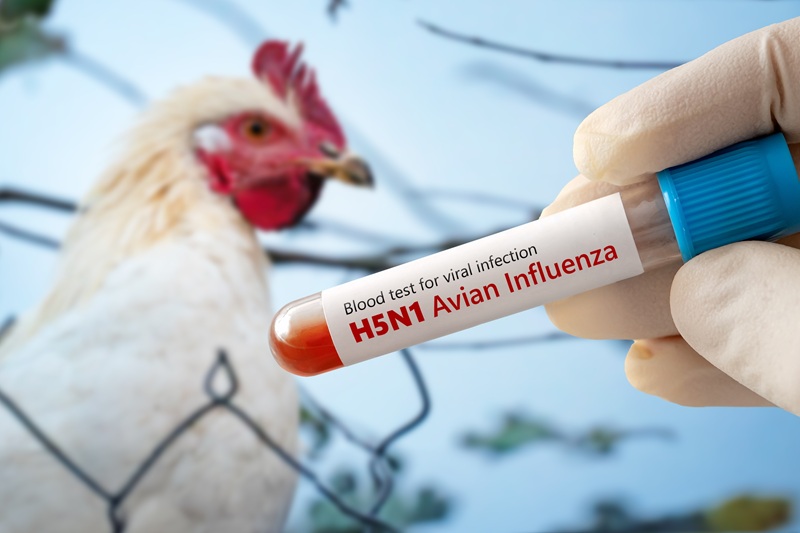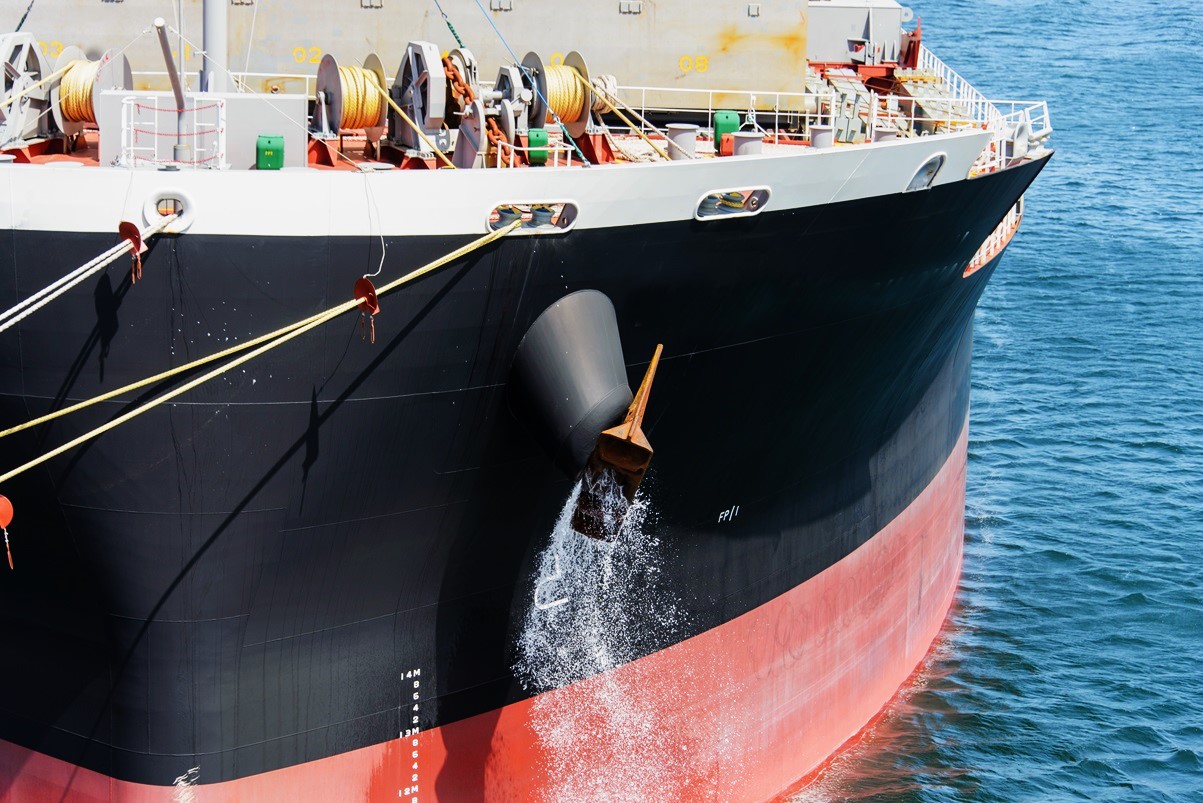
Ministry of Agriculture confirms avian flu ca...
read more

Update 13 February 2025: in a new twist, the ballast water regulation at the Port of Santos is back in effect following a ruling by the Federal Regional Court of the 1st Region in Brasilia. The Santos Port Authority (APS) announced that the regulation will take effect from today. A translation of the APS press release is available for download here.
Update 18 December 2024: in a judgment session held on 12 December 2024, the board of ANTAQ unanimously decided to annul the Santos Port Authority (APS) Resolution NAP.SUMAS.OPR.023.2024 for good. The federal regulatory agency temporarily suspended this resolution in September. APS is still entitled to file an administrative appeal or take the discussion to court.
Update 9 September 2024: the Santos Port Authority issued a press release reluctantly accepting ANTAQ ruling; however, it has stated its intention to seek reconsideration of the suspension of the new regulation. A copy of the document with an English translation can be downloaded here.
Update 5 September 2024: The Federal Waterway Transport Regulatory Agency (ANTAQ) suspended the enforceability of the new regulations until further notice. Read more.
Starting 21 August 2024, Santos Port Authority requires all ships to produce a statement of compliance with the ballast water regulations issued by an accredited private company, in addition to the current requirements under the BWM Convention
The “International Convention for the Control and Management of Ships’ Ballast Water and Sediments” (BWM Convention), adopted by the International Maritime Organization (IMO) in 2004, seeks to control and manage ballast water and sediments to prevent the spread of potentially harmful aquatic organisms and pathogens.
With a few exceptions, vessels of states members to the BWM Convention taking up and using ballast water during international voyages are required to comply with the regulation and carry on board ship-specific documents, namely:
According to the Convention, there are two standards for ballast water management systems (BWMS): ‘D1’ and ‘D2’. The former requires ballast water exchange in open seas at least 120 nautical miles from shore and 200 metres deep; the latter standard sets the criteria for treatment and the maximum amount of viable organisms allowed to be discharged, including specified indicator microbes harmful to human health.
The BWM Convention entered into force globally in September 2017. Since then, existing vessels had to adhere to at least the D1 standard (ballast water exchange) until their D2 compliance date. Vessels built after September 2017 must conform to the D2 standard (ballast water treatment). Ultimately, all ships governed by the IMO treaty will have to meet the D2 standard by 8 September 2024.
Brazil’s National Congress approved the BWM Convention in 2010. It was promulgated by the president in 2022 and incorporated into domestic legislation.
Ballast water matters are regulated by the Navy’s Directorate of Ports and Coasts (DPC) through the “Maritime Authority Standards for the Prevention of Environmental Pollution Caused by Ships and Platforms” (NORMAM-401/DPC), last revised in 2023, featuring a chapter dedicated to ballast water management. All ships with ballast water tanks are subject to Port State Control inspections under the BWM Convention and NORMAM-401/DPC.
To grant vessels free pratique for cargo operations or crew and passenger movement, the National Health Surveillance Agency (ANVISA), Brazil’s port health authority, requires incoming vessels to provide the health documents outlined in the International Health Regulations – IHR 2005 (maritime declaration of health, vaccination certificate and ship sanitation certificate), as regulated by ANVISA’s Resolution RDC 72/2009. In addition, vessels are required to produce the ballast water reporting form stipulated by the BWM Convention.
Upon arrival at a Brazilian port, shipmasters must provide several documents related to ballast water management for verification. These documents encompass the ballast water reporting form, the ballast water record book, and the BWMP, among others. Following the receipt of all documentation provided by the vessel, as mandated by ANVISA, the maritime authority (Port Captaincy), and the immigration authority (Federal Police), respectively, local agents proceed to upload the documents to the Paperless Port System (PSP). The PSP is a single-window electronic platform managed by the federal government. The uploaded information is then accessible for review and scrutiny by all pertinent authorities, who will issue their respective clearances – or impose restrictions or conditions within the scope of their jurisdictions.
When the vessel is in a Brazilian port or anchorage, and the ballast water treatment plant lacks approval by the IMO and class certification, it must be kept with the discharge lines and valves closed throughout the port stay. It is prohibited to discharge untreated or unexchanged ballast water into water bodies. Failure to comply may result in penalties by the maritime authority, which may be combined with criminal and civil sanctions.
The maritime authority, ANVISA and the Santos Port Authority (APS) have concurrent jurisdiction to conduct physical inspections on the BWMS and collect samples according to IMO standards to identify the presence of harmful and pathogenic agents, chemical components, and physical indicators.
On 11 April 2024, the APS issued its new regulation titled “Standard for Control of Management and Conformity of Ballast Water from Ships Operating in the Organised Port of Santos“, coded NAP.SUMAS.OPR.023.2024. This regulation mandates that a private company accredited by the port authority must attest that a ship complies with the ballast water regulations under the BWM Convention, NORMAM-401/DPC, and ANVISA Resolution RDC 72/2009, as applicable.
In addition to statements of compliance issued by classification societies, APS now demands licensed companies to issue their statements of compliance (referred to as AC-BWM) stating whether the vessel’s BWMS has been “approved” or “disapproved”. Under the regulation, apart from the obligation to upload documents on the PSP system, the agents must email the ballast water-related documentation directly to the licensed company, which will have 24 hours to analyse the case and issue the AC-BWM for the agents to upload on the PSP, allowing the ship to obtain permission from the port authority to enter the port and berth.
Regulation NAP.SUMAS.OPR.023.2024 will take effect on 21 August 2024. Any ship that does not produce an approved or failed AC-BWM will not be permitted to dock at port facilities within the jurisdiction of the APS. Shipowners and operators are entitled to challenge APS’ disapproval of AC-BWM through the adversarial system, with full defence rights, either administratively or judicially.
During the 12 months following the publication of the new regulation, vessels with failed AC-BWM will be allowed to enter the port and operate normally as long as they meet the requirements set out by other relevant authorities. As the port authority, APS will report non-conformities to the Port Captaincy for appropriate action.
The new regulation establishes criteria and conditions for companies to be qualified by the APS to provide ballast water compliance-checking services. The prices charged are freely agreed upon between service providers; however, the port authority may intervene to repress actions that may potentially offend the principles of free and fair competition and economic order.
Currently, only one company is authorised by the port authority to issue AC-BWM. The service cost is reported to be around USD 1,400 per document issued for agents who are members of the local union of shipping agents (Sindamar), while non-members will be charged USD 1,700 per AC-BWM.
During a meeting at Sindamar’s offices in the port of Santos earlier this week, APS representatives attempted to address the many doubts and concerns the local maritime community raised. Some of the lingering points and questions highlighted during the meeting included:
While the APS did not consult the shipping community when drafting the new regulation, it promised to hold regular meetings and consultations with stakeholders to adjust and streamline the procedure.
Please read our disclaimer.
Published 20 August 2024. Updated 13 February 2025.
Related topics:
Rua Barão de Cotegipe, 443 - Sala 610 - 96200-290 - Rio Grande/RS - Brazil
Telephone +55 53 3233 1500
proinde.riogrande@proinde.com.br
Rua Itororó, 3 - 3rd floor
11010-071 - Santos, SP - Brazil
Telephone +55 13 4009 9550
proinde@proinde.com.br
Av. Rio Branco, 45 - sala 2402
20090-003 - Rio de Janeiro, RJ - Brazil
Telephone +55 21 2253 6145
proinde.rio@proinde.com.br
Rua Professor Elpidio Pimentel, 320 sala 401 - 29065-060 – Vitoria, ES – Brazil
Telephone: +55 27 3337 1178
proinde.vitoria@proinde.com.br
Rua Miguel Calmon, 19 - sala 702 - 40015-010 – Salvador, BA – Brazil
Telephone: +55 71 3242 3384
proinde.salvador@proinde.com.br
Av. Visconde de Jequitinhonha, 209 - sala 402 - 51021-190 - Recife, PE - Brazil
Telephone +55 81 3328 6414
proinde.recife@proinde.com.br
Rua Osvaldo Cruz, 01, Sala 1408
60125-150 – Fortaleza-CE – Brazil
Telephone +55 85 3099 4068
proinde.fortaleza@proinde.com.br
Tv. Joaquim Furtado, Quadra 314, Lote 01, Sala 206 - 68447-000 – Barcarena, PA – Brazil
Telephone +55 91 99393 4252
proinde.belem@proinde.com.br
Av. Dr. Theomario Pinto da Costa, 811 - sala 204 - 69050-055 - Manaus, AM - Brazil
Telephone +55 92 3307-0653
proinde.manaus@proinde.com.br
Rua dos Azulões, Sala 111 - Edifício Office Tower - 65075-060 - São Luis, MA - Brazil
Telephone +55 98 99101-2939
proinde.belem@proinde.com.br